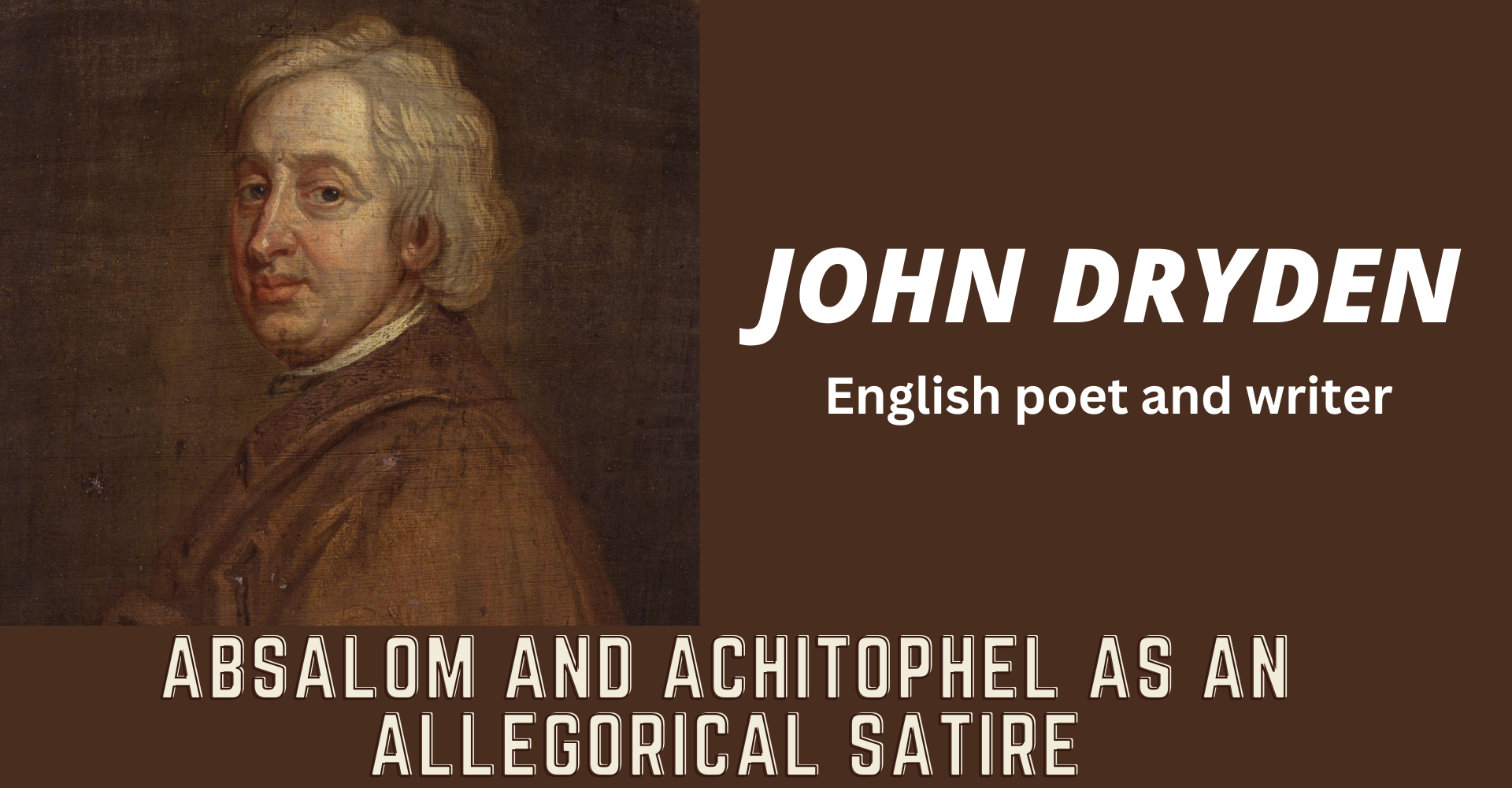Whether or not at the request of Charles II, Dryden had found his great literary opportunities is uncertain. But, of this, says Ward, “he took advantage in a spirit far removed from that of either the hired bravos or the spiteful lampooners of his age. For this opportunity, he had been unconsciously preparing himself as a dramatist; and it was in the nature of things, and in accordance with the responsiveness of his genius to the calls made upon it by time and circumstance, that in the season of a great political crisis, he should have rapidly perceived his chance of decisively influencing public opinion by an exposure of the aims and methods of the party of revolution. This he proposed to accomplish, note by a poetic summary of the rights of the case, or by a sermon in verse on the sins of factiousness, corruption and treason, but by holding up to the times and their troubles, with no magisterial air or dictatorial gesture, a mirror in which under a happily contrived disguise, the true friend and the real foes of their King and country should be recognised. This was the Varronian form of satire afterwards commanded by him, with a well warranted self-consciousness, the species, mixing factious intent with pleasant manner, to which, among the ancients, several of Lucian’s Dialogues and, among the moderns, the Encomium Moriae of Erasmus belong.”
Satiric Vision of Dryden : This brings us to one of the most important aspects of Dryden’s poetical works. “The true end of satire,” Dryden says, “is the amendment of vices by correction.” It is a simple statement, ‘but unfortunately, it does not apply even to all his own satires quite apart from those of other writers. Yet further, he adds: “Of the best and the finest manner of satire………it is that sharp and well-mannered way of laughing a folly out of countenance.” At his best, Dryden follows this principle-the principle of an artist when, irritation or anger under control, he is at the top of his bent, laughing- in a “well-mannered way” quite compatible with sharpness. Dryden’s contempt is finely expressed in his character of Achitophel Zimri and of Shimei, stinging but cool, full of humour and masterly wit. Humour and wit, which delight in incongruities of character and idea, are the means with which the satirist exposes and belittles. Dryden eminently employs this device and achieves masterly effects at every time.
Dryden often, as in The Medal and Mac Flecknoe, in personal satire. Personal gives were the staple of the Roman Saturate. Personal satire can be salty and effective. It can survive only on its intrinsic merits. Dryden follows the principle he deduced from the classical satirists and attacks individuals exemplifying general abuses. Particular persons he wrote, when they have become public nuisances, “may properly be exposed by same for public examples of vices and follies.”
Dryden‘s satiric vision is primarily that of Aristophanes and of Rabelais. As Nichol Smith puts it, “His best work is inspired by the sanity that inhabits at the heart of things. He lived in a turbulent age, and he was a fighter. But all extremists are his natural enemies. His weapons can be used, on occasion, by either side. He hated them.
PLEASE HELP ME TO REACH 1000 SUBSCRIBER ON MY COOKING YT CHANNEL (CLICK HERE)











